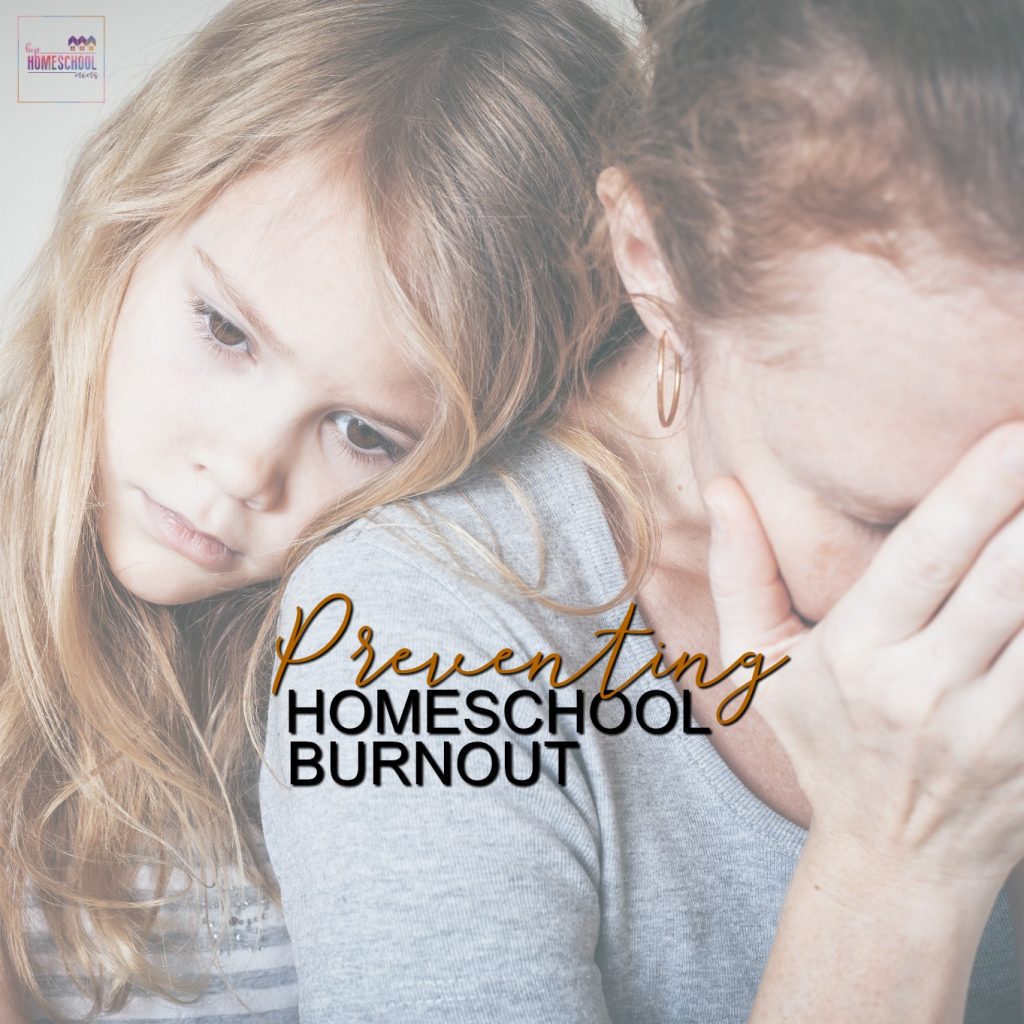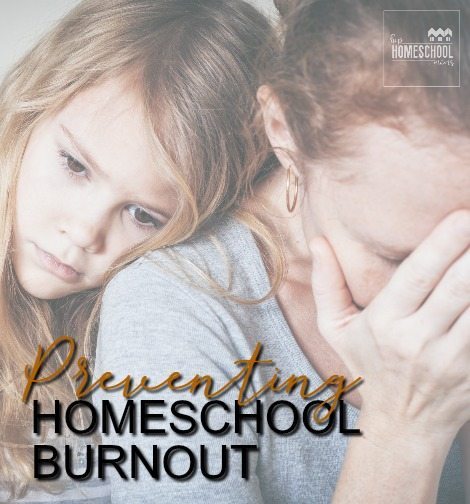Preventing Homeschool Burnout
Let’s talk some more about homeschool burnout. (If you missed my first article earlier this month, you can read it here.) I’m Wendy, co-owner of the Hip Homeschool Moms site, and I’ve been homeschooling for 19 years. I’ve definitely felt burned out a few times, but I’ve learned some strategies and ideas for preventing burnout and for dealing with it when it does happen. I’d love to share some of what I’ve learned with you!

Below I’ll discuss some of the common mistakes that homeschooling families make that can easily lead to homeschool burnout. Think about your own homeschool and whether or not you could be doing some of these things. Then take steps to make your homeschool work better for you and your children. Take time over the summer (if you take the summer off) to think about your next homeschool year and how you can adjust your curriculum or method of homeschooling. You can make homeschooling more pleasant and less stressful with a little bit of planning.
Doing Too Much Academic/Seat Work at Young Ages:
First of all, I think we put far too much pressure on ourselves and our little ones at a very young age. It’s no wonder we get burned out when we attempt to start doing hours of seat work with our little ones from the time they’re preschool age! The vast majority of very young children simply aren’t ready for hours of academic seat-work. In fact, if I could stress one single thing to mothers of preschoolers and younger elementary aged children, that’s what I would stress!
So why does attempting to do too much academic work with young children cause burnout? Because we’re putting too much pressure on ourselves as teachers and our children as students when we do academics too soon. It’s stressful for both parent and student. It’s so much better to allow our little ones to learn in less structured ways. I so wish I had known this when my children were very young, and I think our early years of homeschooling would have been much more pleasant and productive!
Using a Highly Structured Homeschool Program:
There is a connection between homeschooling moms who experience burnout and those who use a highly structured homeschool curriculum or program. From my own experience, I’ve discovered that students generally respond better to more structured homeschool programs when they’re older and more mature—around the later elementary, middle school, and high school years. At those ages, the students are more mature, able to do more seat-work, able to concentrate for longer periods of time, and able to take more responsibility for themselves when it comes to getting their work done.
Even at those older ages, a highly structured homeschool program isn’t necessarily required. My children actually began to enjoy doing more structured work at older ages, so I was fine with that! Some students, though, continue to enjoy doing more delight-directed homeschooling, and there’s nothing wrong with that either!
Failing to Consider What Works Best for You and Your Family:
Another thing to keep in mind, and something that you will hear from me again, is that each family should do whatever kind of homeschooling works best for that family. (Next month we’ll be talking more about different kinds of homeschooling approaches/methods!) Each family should decide how much structure works for that family. What you should not worry about is what kind of curriculum, what homeschooling method, or how much structure works for someone else’s family. That’s a sure way to end up with burnout!
Another thing to keep in mind is that we are preparing our children for real life. We’re preparing them to be productive citizens, caring spouses, loving parents, hard workers, and good people. We’re building relationships with them, loving them, and teaching them to love learning—not attempting to cram as much academic knowledge into their brains as we can in 12 or 13 years of homeschooling. In other words, character is (and always will be) more important than academics. Yes, we want our children to be well-educated. But even more important than that is that we prepare them to be people who love God, love learning, and love others.
So if you’re experiencing homeschool burnout, take a look at your curriculum/method of homeschooling. Think about whether or not you’re simply trying to do too much structured work. Consider ways you might be able to develop a less structured way of teaching/learning. Think about whether you’re trying to do too much with each child. Could your older child/children do more independent work? Are you working too closely with each child? Yes, I know we homeschool at least in part to develop relationships with our children, but at the same time, we want them to learn to be independent workers. Teaching them to depend on us to get every little thing done is not doing them (or us!) any favors!
If your children are younger, think about whether you may be requiring too many hours of school each day or whether you’re expecting them to do too much seat work at too young an age. Maybe you should let them learn more through play or real-life activities. Is it possible to have older children do some one-on-one work with your younger ones? (Sibling relationships are important too, and this may be a way to help develop stronger bonds between older and younger siblings.)
Not Consolidating Subjects When Possible:
Another things to consider (and one we’ll talk more about later) is teaching different ages the same subject at the same time. Is it possible to read living books together or study certain subjects together? Instead of doing science for your younger student/s and another science lesson for your older ones, could you teach them all together and require more feedback or additional work from the older ones and less from the younger ones? Could you do this for history? Reading/literature? Other subjects?








